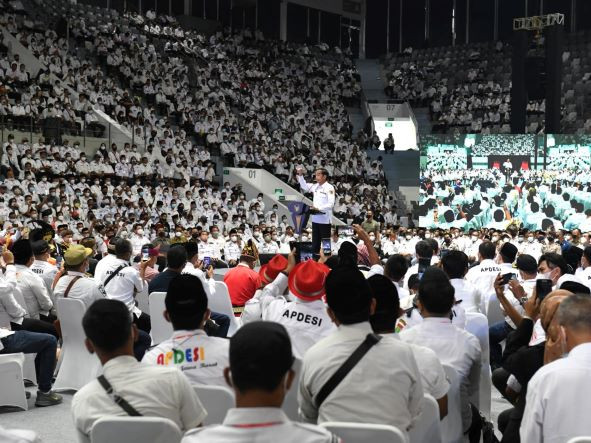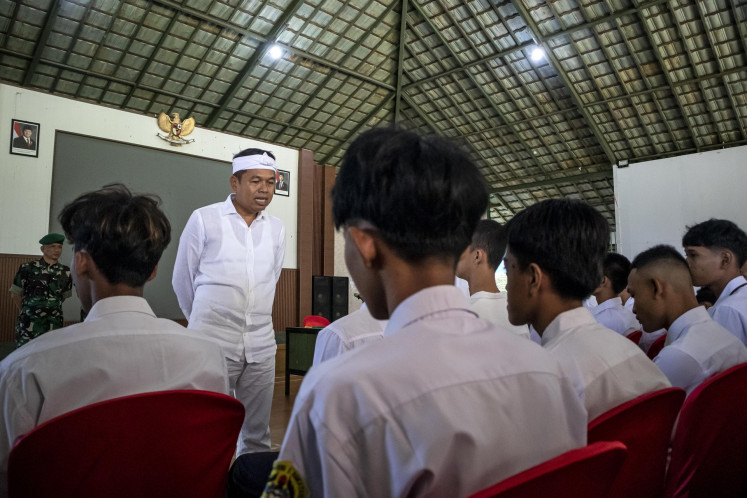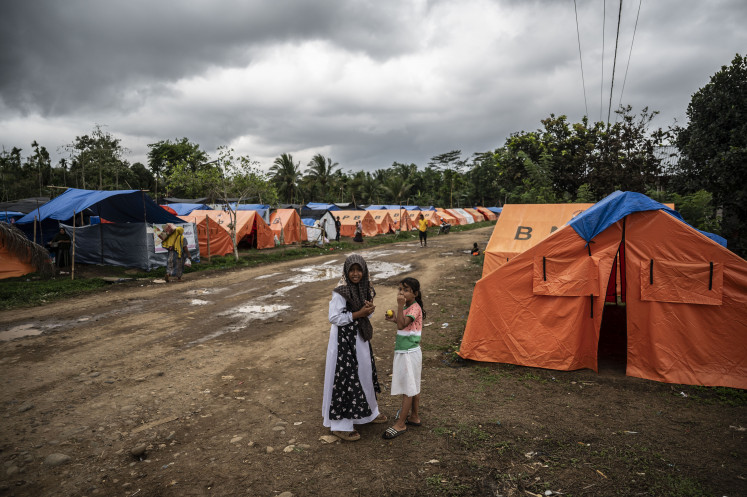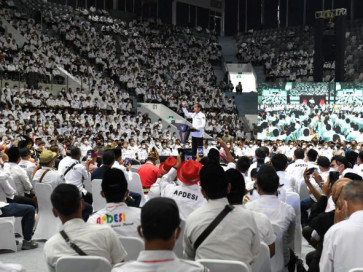Popular Reads
Top Results
Can't find what you're looking for?
View all search resultsPopular Reads
Top Results
Can't find what you're looking for?
View all search resultsPolitical motive potentially behind proposal to extend village head term: Observers
After thousands of village heads across Indonesia held a protest in front of the House of Representatives last week demanding a longer term in office, policymakers are signaling that they might agree to extend the tenure to nine years. But observers are questioning the political motive behind the move, occurring as Indonesia enters its political year, and the risk to democracy it poses.
Change text size
Gift Premium Articles
to Anyone
A
fter thousands of village heads across Indonesia held a protest in front of the House of Representatives last week demanding a longer term in office, policymakers are signaling that they might agree to extend the tenure to nine years. But observers question the political motives behind the move, occurring as Indonesia enters a political year, and the risk to democracy it poses.
Indonesian Democratic Party of Struggle (PDI-P) politician Budiman Sudjatmiko was quick to claim that President Joko “Jokowi” Widodo supported the idea of extending the tenure, saying that all that was left was to discuss the matter with the House, Kompas.com reported. He made the claim after meeting with Jokowi last week.
Answering questions from reporters on Tuesday, Jokowi made no mention of supporting the extension, only that the authority lay with the House. “All aspirations should be communicated to the House, but the law is clear, six-year terms and for three periods. [Any revision] will have to be processed by the House.
The proposal came after thousands of village heads staged a protest in front of the House complex in Jakarta last week, demanding policymakers revise the 2014 Village Law that regulates their tenure. Under the law, they are elected for a six-year term with a three-period limit, meaning that they can be in office for a maximum of 18 years.
Addressing reporters during the protest, Poja village head Robi Darwis from West Nusa Tenggara (NTB) argued that there was still too much competition between prospective candidates in a six-year term. “We hope that [a nine-year term] will reduce political tension, and allow us to consult and work together for the good of the villages," Robi said.
While voicing his support for the idea, Villages, Disadvantaged Regions and Transmigration Minister Abdul Halim Iskandar proposed a nine-year term with a two-period limit, meaning the 18 years limit remained.
“The people will benefit from this because they won’t have to deal with unproductive political tension, as it affects not just the village chiefs, but also the villagers,” said the minister in a press release. He claimed that the ministry had already proposed this idea to experts last year, so the proposal had already gone through an academic review.



















